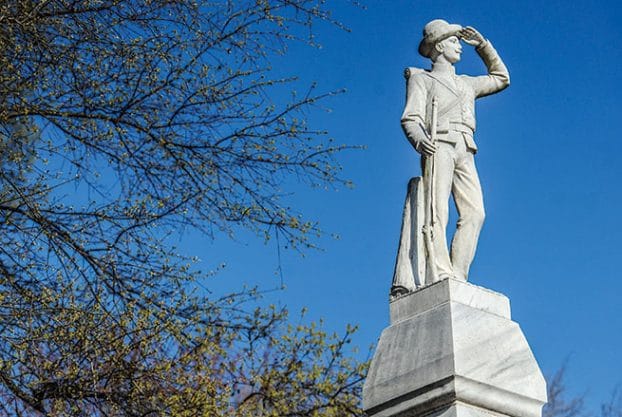On June 18, 2020, the Mississippi Board of Trustees of State Institutions of Higher Learning approved the University of Mississippi’s request to relocate the monument. The university’s proposal was supported by this documentation.
Since the decision in January, UM provided an update on the contextualization plan. UM finalized plans to add headstones to the cemetery on campus. In addition, we are working to develop an appropriate marker to commemorate the Lafayette County men who were among the black soldiers who served in the Civil War and acknowledge their efforts to bring secession and slavery to an end.
The monument will remain on campus grounds. The Mississippi Military Protection Act (Miss Code. Ann. § 55-15-81) is the state law that governs the relocation of confederate monuments and memorials. The governing body may only move the memorial to a more suitable location if it is determined that the location is more appropriate to displaying the monument.
Listed below is a message from the University of Mississippi Chancellor Glenn F. Boyce sent to the university community earlier today (Thursday, June 18, 2020). This message, as well as FAQs regarding the relocation of the monument, can be found here.
Message from University of Mississippi Chancellor Glenn F. Boyce:
Dear university community,
We appreciate the vote today by the State Institutions of Higher Learning Board of Trustees to approve the University’s proposal to relocate the monument on our campus. The presence of the monument in the heart of our campus has been a subject of debate off and on for a long time. Now is the time for change as we strive to make a better present and future for everyone on our campus.
This vote marks the culmination of years of research and discussion on how to address the monument. State law prohibits the relocation of any war memorial unless the proposed new location is more appropriate to display the monument. The approved plan allows the University to move the statue to the cemetery on campus. We are now prepared to complete this work and will do so as quickly as possible.
While many played a role in this process, it is important to recognize the group of students who reinvigorated this discussion, researched the issues, and developed proposals for relocation. They demonstrated the type of leadership that is a hallmark of our students. We also recognize the important support that came from student, faculty, staff and administrative governing bodies as well as several alumni and university foundation boards.
We are pleased to bring about this important change for our community.
Sincerely,
Glenn F. Boyce
Chancellor




